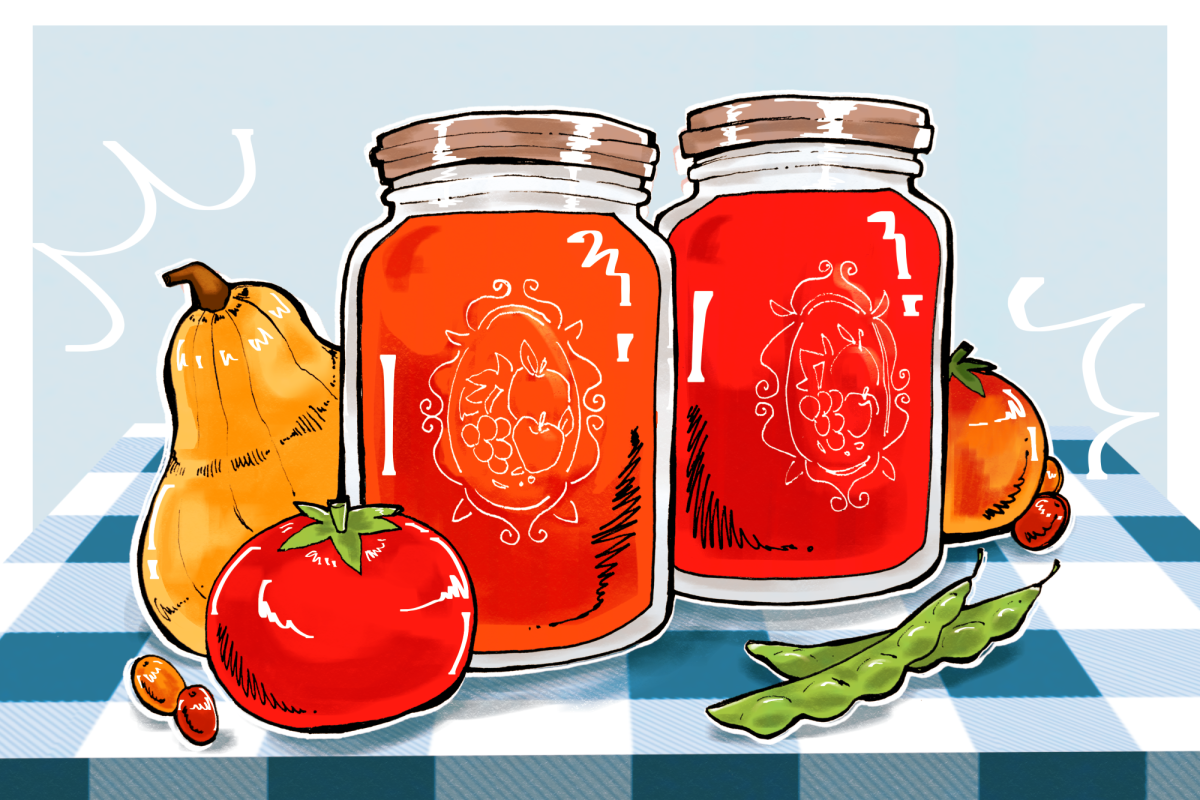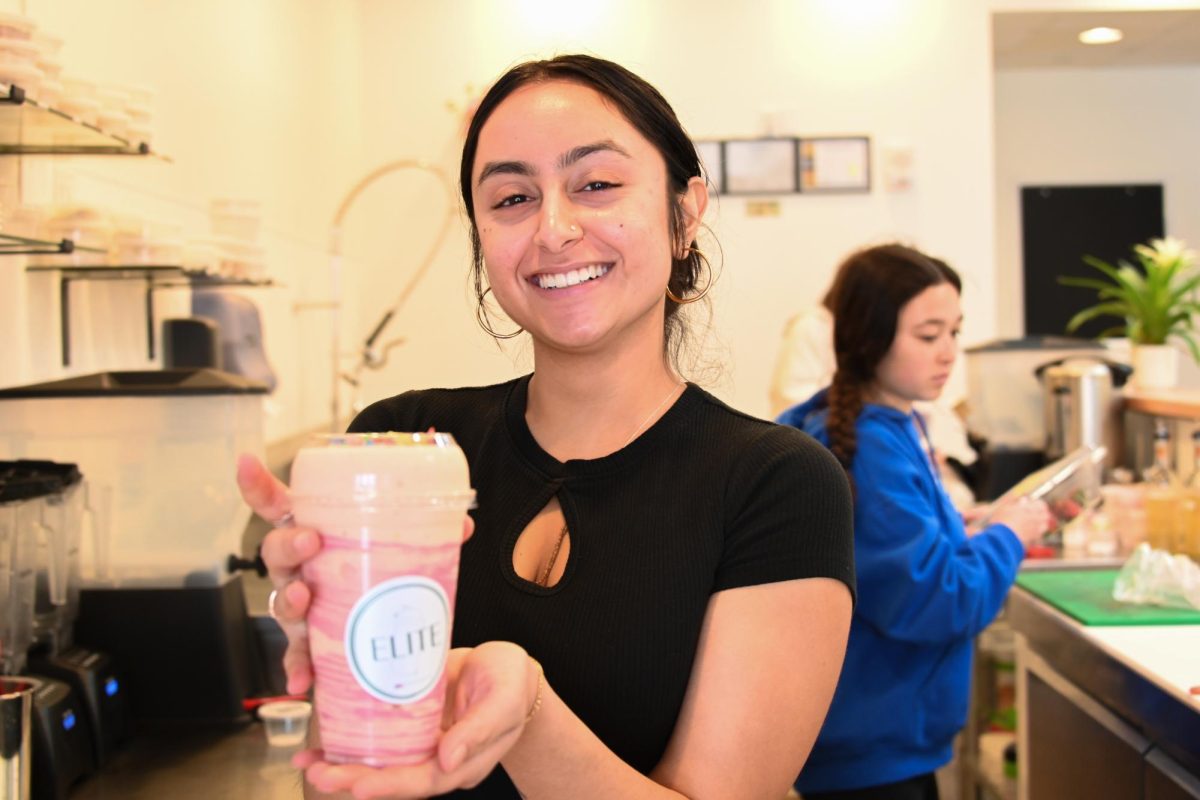Sue Tiger’s journey as a gardener and canned good aficionado began with a tomato.
As a child in Pekin, Illinois, she enjoyed fresh, delicious and locally grown tomatoes from her grandfather’s hand. Decades later, she was perplexed by the obvious decline in the quality of produce available in grocery stores. She scoured her local supermarket but couldn’t find a single tomato grown in the United States.
Sue learned that produce sourced from distant locations must be picked before it is ripe to last through transportation. As a result, it lacks the nutritional benefits of locally grown produce.
After visiting Urbana’s Market at the Square, she dove into the world of gardening — and then canning. In 2016, she married Tim Tiger, and the pair began selling their canned goods at the market three years later.
Now co-owners of Tiger Gardens, their dedication to serving the Champaign-Urbana community remains strong.
Get The Daily Illini in your inbox!
The path from fresh-picked produce to the final product is lengthy; ingredients must be washed, combined, cooked, properly sealed and labeled before being sold. Sue and Tim use a pressure canning process to ensure that each product is preserved for at least 18 months unopened.
To accommodate the extensive process, the Tigers prepare ingredients in the mornings before heading to their full-time jobs and continue canning and picking recipes in the evening.
“It’s a labor of love, definitely,” Sue said. “It’s like making art.”
The Tiger home is decorated with jar-littered tables and a constantly-running dishwasher: testaments to their unfaltering work.
During nearly six years of selling at the farmers market, Tiger Gardens has built a rapport with returning customers.
“We will always sell at the farmer’s market because that’s the only way to have a close relationship with the people that are consuming our products,” Sue said.
The market is open on Saturdays in downtown Urbana from May to October. Market coordinator Bryan Heaton said the community of vendors and customers is a close one, and the Tigers frequently source their ingredients from other vendors.
Heaton met the Tigers six years ago when they began selling at the market and has been impressed with their range of products, relationships with customers and passion for their work.
“They’ve really taken what was probably a pretty basic business and made it very complex and very local,” Heaton said. “I have a lot of respect for them.”
Other vendors at the market sell canned goods, Heaton said, but Tiger Gardens stands out in several ways. Their commitment to service and practicality shines through their return system; Sue and Tim clean and reuse jars returned by customers, who are then compensated with store credit.
Small-scale food productions like Tiger Gardens offer the kind of intimacy between producers and consumers that is typically absent from corporate and chain grocery stores.
“You’d be surprised how happy jam makes people,” Sue said. “They get to ask me questions about how we make it, what recipes we’re making; they get to recommend stuff.”
In addition to an active blog and YouTube channel, Tiger Gardens has expanded their reach by leading classes at the ARC. Their Valentine’s Day class was overflowing with eager pupils, to Tiger’s amazement.
“All these … college kids came and made strawberry jam and pizza sauce on a Friday night and were happy to do that,” Sue said. “I’d love to see that everywhere.”
Katerina Alikakos, sophomore in Engineering, attended the Valentine’s Day class, hoping to enjoy the holiday and learn about sauce-making. She met a full room of couples and friend groups — and left with new skills.
Alikakos said she expects the recipes she learned will help her cook when she moves into an apartment next year.
“I know how to make jam because I went to this class,” Alikakos said. “I think that’s super cool, so I would definitely be interested if she kept doing classes.”
Sue hopes to shift perceptions of canning and interest younger people in the craft. She commented that marketing in the canning world should brand the process as youthful and high-end to attract new audiences.
“I want people to not think of canning as preserving and as preparing for the zombie apocalypse,” Sue said. “I want them to think of it as adding value to your pantry.”
Sue and Tim have built a successful business in canned food production over the years. Along the way, they have fostered joy, trust and community with their C-U neighbors.








